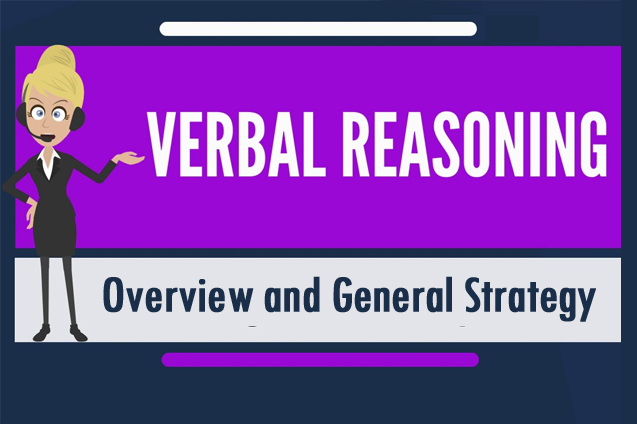Verbal Reasoning Section Overview
Starting with the basics, here are the types of question you should be prepared to answer in the verbal reasoning section of the GRE:
- Text completion: These questions will ask you to select the correct word to best complete a sentence. However, although this sounds simple, the GRE will often ask you to accurately fill in multiple blanks, sometimes over the course of an entire paragraph.
- Sentence equivalence: While these are a variation of text completion questions, they are a unique challenge. Rather than simply asking you to identify synonyms, the GRE will also test your ability to select the two sentences that are most closely related.
- Reading comprehension: This section will test your ability to read passages of varying length (anywhere between 100 and 450 words) and respond to a handful of corresponding questions based on pure reading study skills and critical reasoning skills. Be prepared to read materials from a variety of fields, including science, technology, literary critiques and social sciences.
Now that you have a better idea of what to expect on test day, don’t be tempted to start by throwing yourself into endless practice question sets.
General Strategy
We think you can make your verbal reasoning prep far more productive and engaging, starting with these tips:
- Avoid staring endlessly at your dictionary: While your understanding of vocabulary will be tested on the GRE to some degree, at no point will you be asked to simply define a given word. Instead of trying to memorize the entire dictionary, trust your study materials – which should include a list of commonly used words on the GRE – and focus your attention on what’s in front of you.
- Make your flashcards work harder for you: Flashcards can be an effective part of your GRE study plan, but even more so if you put in the effort to make them personal. Supplement the definitions by using your vocabulary words in sentences that include real details, including family, friends or a memorable event. This might seem like more content to study, but ultimately you’ll find that studying new words in this fashion will truly help them stick.
- Read everyday: Most test takers are not trained to do the volume of reading required on the GRE. You’ll need a break from most facets of your GRE prep occasionally, but make reading everyday a habit leading up to your test day. This will especially come in handy when faced with a long passage that you’re not particularly interested in reading. Even though the material might be dry, your brain will be trained to process the information quickly, thanks to all the additional outside reading you’ve done. If you aren’t sure what to read, popular recommendations include The New York Times, The Economist, The New Yorker, and The Atlantic. Most importantly, read actively, consuming your literature with purpose and thoughtfully. While reading, ask yourself:
- What is the main idea of this piece?
- What type of article is it? Ex: critique, expository, etc.
- What is its tone/opinion? Ex: neutral, critical, etc.
- How is this article structured?
Studying for the GRE is difficult when you’re uncertain of what to expect, and we hope this rundown has provided you with a clearer idea of what you’ll face on the verbal reasoning section. Best of luck with your studies.

